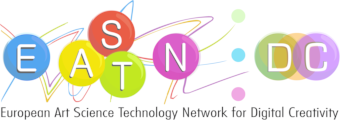The 21st century is characterized by the extended involvement of people on the production and “consumption” of digital data, especially in the form of multimedia content. In this context, computer games have evolved to become one of the most familiar and widespread forms of digital content, by further enhancing the active involvement of their players. It comes to no surprise that systematic scientific research has been carried out on the deployment of computer games as a means of a new type of historical documentation and representation that utterly alters the way History can be perceived by the general public. Moreover, digital games as a modern means of knowledge mediation are capable of presenting under judgment what has happened in the past, while, in the form of “serious games”, they employ pedagogical techniques to enhance both the level of knowledge and the skills of the players. Our present work proposes a design methodology for the development of such an educational gaming tool, utilizing well-established behavioral and cognitive learning models to form an innovative approach to the Greek revolution. Thus, the educational content will be coupled with game mechanics following principles of the persuasive technology.
Despite the abundance of literature about the types, elements and results of gamified applications, a standard methodology for developing an educational one, does not exist yet. So, we chose to design a gaming application running on modern computing devices and targeting mainly students, without neglecting the general public, based on existing models of persuasive technologies, gaming methodologies and cognitive processes. The players/students, by “traveling back in time”, will be immersed in a collection of scenarios/missions, based on and reflecting on real historical events ranging from 1821 AD to 1827 AD. On each mission they will encounter problems and challenges faced by the actual pioneers of the Greek revolution, combined with related historical information. They will have to choose carefully among a set of limited available resources (representing the main operational roles) to mobilize and involve for the mission accomplishment. Depending on the selected mix of resources and user’s actions during the game, the mission will either succeed or fail; in the case of failure the player will be hinted on the reasons of failure, before repeating the mission with a different setup. User’s actions and decisions through the game will also reflect, on a positive or negative way, on the availability and operational skills of the available resources. Players will understand in this way, the difficulties of such a venture and learn about possible forms, actions, driving forces and interactivity of different social groups.
Two major challenges during the game design and implementation are to achieve an optimal balance between the educational scope and the gaming experience - the outcome should ideally be a “serious game”, that serves the educational purposes but yet still a game which the players will enjoy to play, and to transform historical events and complex concepts and interactions of the Greek revolution, backed-up by educational methodologies, into popular mock-ups, simulations or actual game genres, such as role-playing (RPG), strategic, shoot 'em up and platform games, which enjoy a vast popularity among players.
The main innovation of this approach lies in the fact that a digital game is becoming a new form of cultural product, inseparable to history, by unfolding narratives and “playful” situations. Contrary to conventional narratives, the game will not just be limited to the presentation of an event, but a whole sequence of possible events, forming an integrated experiential educational system. Thus, it imposes a multi-dimensional task by presenting the past as a non-linear representation of time, while enabling the involved player to realize the potential possibilities of his game-character. Moreover, the immersion and active involvement of players will form a fundamental prerequisite for understanding the actual content.
The overall contribution of the game in the learning process is defined by the gained experience through the engagement and immersion in the game itself, the deeper reflection, the problem solving and goal achievement challenges, the analysis of an existing situation and finally the so-called self-evaluation tasks. If we combine the previous features with those of constructivism theory, that is, the building of knowledge during a digital game, then the later gains a special added value through the continuous challenges and active involvement of students / players that lead to knowledge. Following the development of the game, a testing and evaluation period has been planned in order to provide feedback for further enhancements.
Back
“Reflections: Bridges between Technology and Culture, Physical and Virtual”
is supported by:






